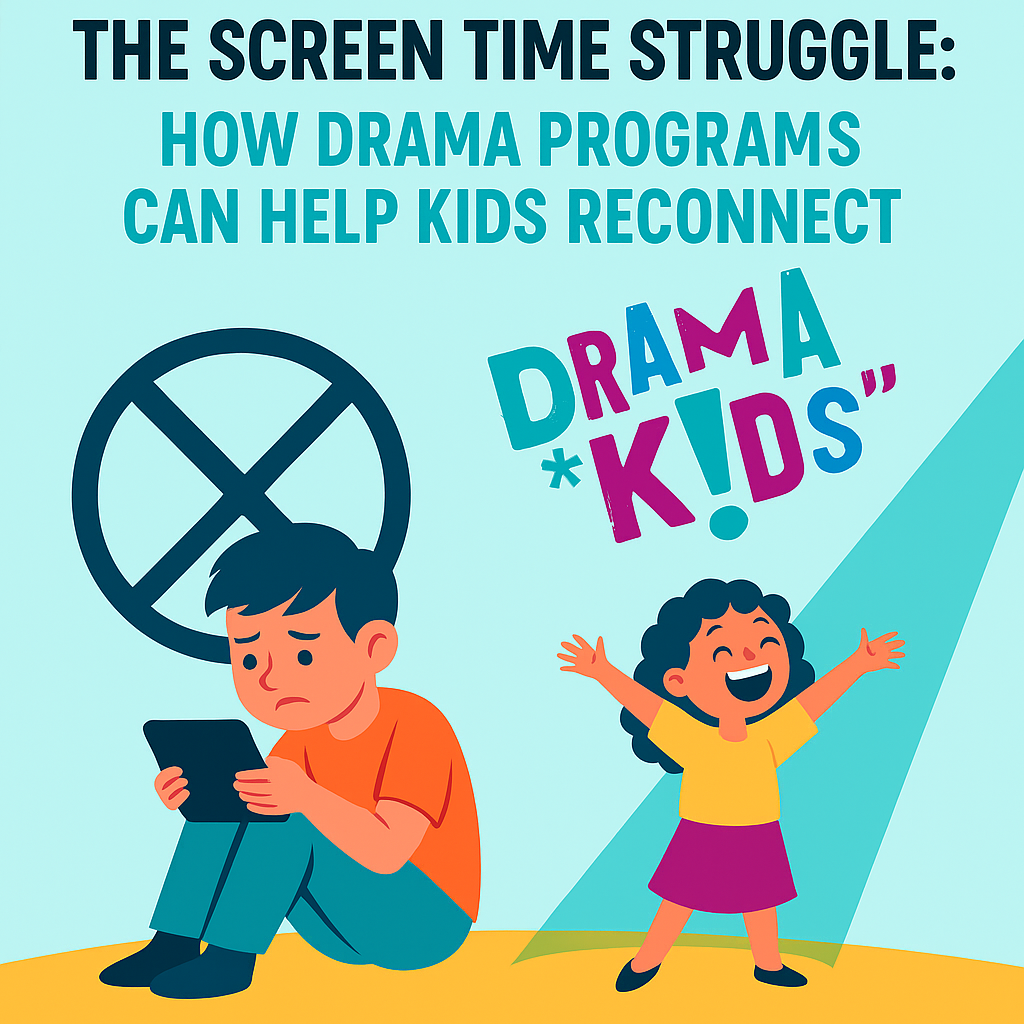In today’s digital age, kids are more plugged into their screens than ever before. Whether it’s scrolling through social media, binge-watching videos, or gaming for hours, excessive screen time has become a growing concern for parents and educators alike. The effects? Increased anxiety, diminished social skills, and even developmental delays. But there’s a surprising solution that can help counteract the negative impact—drama programs like Drama Kids
The Hidden Dangers of Excessive Screen Time
Children’s brains are still developing, and excessive screen time can hinder crucial cognitive and emotional growth. Studies show that too much time staring at screens can lead to:
Reduced attention span – Instant gratification from digital content makes it harder for kids to focus on real-world tasks.
Poor social skills – Less face-to-face interaction means children struggle with communication and empathy.
Sleep disturbances – The blue light from screens affects melatonin production, making it harder to sleep.
Increased anxiety – Social media pressures and overstimulation lead to heightened stress and self-doubt.
According to the Canadian Paediatric Society excessive screen time can negatively impact early childhood development, affecting social interactions and emotional regulation. Additionally, a study published in *JAMA Network Open* found that reducing leisure screen time significantly improved children’s mental health and prosocial behaviors.
How Drama Programs Can Be the Antidote
Drama-based activities provide an engaging way for kids to express themselves, build confidence, and connect with others—without a screen. Here’s how drama programs can help:
- Boosts Social Development
Acting in a group setting requires teamwork, communication, and listening—skills that screen time often diminishes. Kids learn how to collaborate, resolve conflicts, and develop empathy by stepping into different characters.
- Encourages Imaginative Play
Rather than consuming content passively, drama forces kids to engage their creativity. Whether they’re improvising a scene or performing in a play, drama fosters problem-solving and original thinking.
- Builds Confidence
Standing in front of an audience can be nerve-wracking, but drama programs help kids overcome stage fright, boosting self-esteem and resilience—skills that are crucial in adulthood.
- Supports Emotional Well-being
By acting out different emotions and stories, children learn to navigate their own feelings better. Drama is a powerful tool for self-expression, helping kids articulate their thoughts in a healthy way.
Research suggests that early childhood experiences play a crucial role in development, and drama programs provide an opportunity for children to engage in meaningful social interactions. Institutions like the Centre for Drama, Theatre & Performance Studies and Mount Allison’s Drama and Screen Studies Program emphasize the importance of drama in fostering creativity and communication skills.
Striking the Balance
This isn’t to say screens are all bad—there are plenty of educational apps and resources that benefit kids. The key is balance. Encouraging drama programs alongside responsible screen usage can give children the best of both worlds—a chance to explore creativity, build essential life skills, and maintain a healthy relationship with technology.
So, next time your child reaches for the tablet, consider signing them up for a drama class instead—it might just be the refreshing reset they need. Click here for your nearest Drama Kids Class
